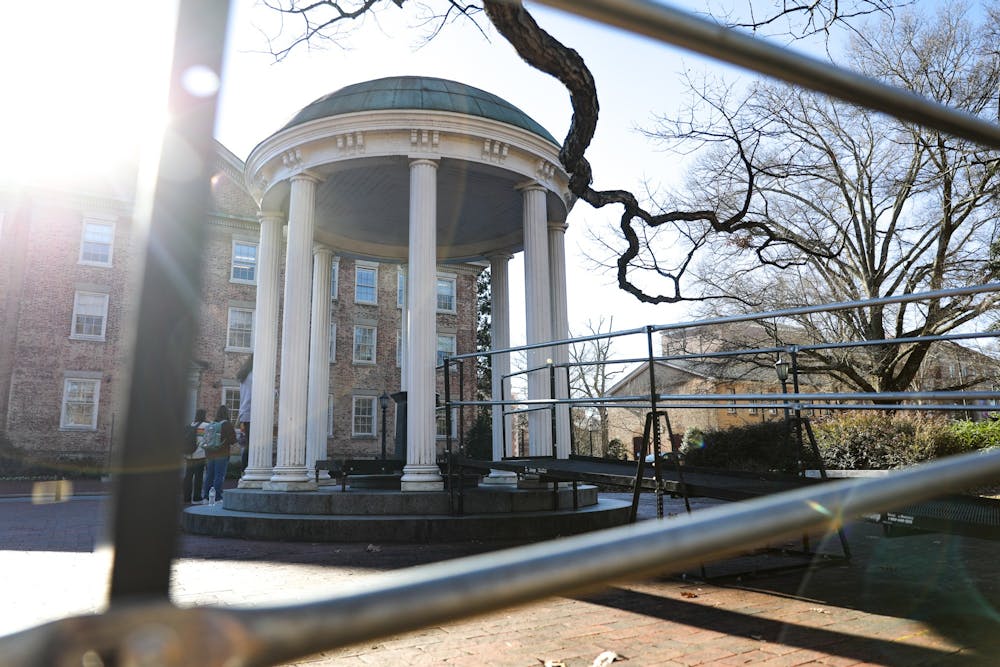“None of us (is) in a position to substitute our judgment for that of public health experts and physicians,” he writes of his leadership team in the law school and makes reference to experts presumably consulted by University administration.
N.C. Policy Watch recently reported that UNC epidemiologists projected thousands of new infections at the start of the semester. But the truly insidious idea central to Brinkley's letter is that the law school simply cannot make decisions for itself in the face of almighty experts.
This is not just terrible legal and academic advice — legal careers and academic advances are built on the reality that experts can be and are often wrong — but it’s also incredibly harmful to disabled people and students who are constantly having to make decisions for ourselves in the face of “expert” guidance.
If Brinkley wants to understand the public health impacts of the omicron variant on the law school, he need look no further than its disabled students. Disabled people have consistently predicted problems and advocated for solutions throughout the pandemic, yet we have been ignored.
At the onset, disabled people knew that we needed widespread testing to avoid transmission, that our healthcare infrastructure and social safety nets were not enough and that we cannot rely on personal responsibility to vaccinate the public when systemic barriers exist. Even now, disabled people are pointing to the challenges ahead of adapting our social safety nets in a future where many COVID-19 survivors will be left unable to work due to “long COVID."
Many of the advances we’ve made for accessibility became key during the pandemic, from the high-tech to the seemingly mundane. Speech-to-text transcription was a critical development in assistive technology that is incredibly helpful for remote education and disabled people invested in grocery deliveries long before lockdowns.
As social media icon and disability justice advocate Imani Barbarin said in a recent tweet, “I don’t think any one of you have ever once asked yourselves, ‘What do disabled people already know that we don’t know?’”
Instead of asking this question, Brinkley decided to let disabled students — and others — rot on the vine, unsure if we’ll be able to actually participate in our classes or be reduced to watching video-taped recordings, straining to hear the classroom discussion.
In his letter, he acknowledges that some students will disagree with this “educational” decision. But this choice spits in the face of the time-honored Socratic method, eliminates students’ ability to ask questions during class discussions and makes a mockery of the purported fairness underlying the school’s GPA ranking system.
As a high-risk student, my professors have offered to not penalize me if I need to view class recordings remotely. After considerable pressure from students, the school has even agreed to have certain law school courses be held remotely, at least through Jan. 14. This makes me luckier than many second and third-year students who must attend some classes in person nonetheless.
But after that date we can expect nothing but limbo. While theoretically, each of our professors could independently make the decision to reassess on a week-by-week basis and choose never to go back to in-person instruction, that is difficult to expect and ridiculous to assume.
However decisive students' responses to the law school's policy have been, we — and our professors — are still left unsure how to plan for the rest of the spring.
To get the day's news and headlines in your inbox each morning, sign up for our email newsletters.
Students who are currently remote will eventually be forced back to campus, a reality that hangs over classroom discussions. Inevitably, “some students” will be left behind when it happens and asked to make difficult choices on their own.
Many of us understand the benefits of in-person learning and why so many want to find it. Most of us also aren’t sure when exactly it will be safe for us to return to campus. But we know it’s not right now.
Brinkley writes that he cannot substitute his judgment with that of a health expert, but I am an expert on my own health and my own needs. My classmates are experts in the health and needs of themselves and their families.
At the end of the day, I get the same impression from the law school that I get from my doctors, the “experts” I’m expected to trust with my life. I’m assumed to be disposable because I’m disabled. My neurologist assumed I was another lazy twenty-something without any ambition. Another told me there was “no point” in treating me. My primary care physician even assumed I stopped dating when I became disabled.
I’ve laughed off and disproved countless assumptions people have made about me. I won’t lie — sometimes it even helps to be seen as an underdog or a secret weapon. But now, I’m assumed to add so little to my classes that it is perfectly acceptable when I’m not really a part of them.
I see campus opening back up and administrators sticking their heads in the sand, and the only decision being delegated to me is whether or not I risk my life to attend my classes. That’s a difficult decision to make.
Editor's Note: Nicholas Li-wen Hatcher is on the board of UNC's National Lawyers Guild, a signatory on the letter to School of Law administration regarding spring semester operations.
@hatcherade
opinion@dailytarheel.com | elevate@dailytarheel.com



